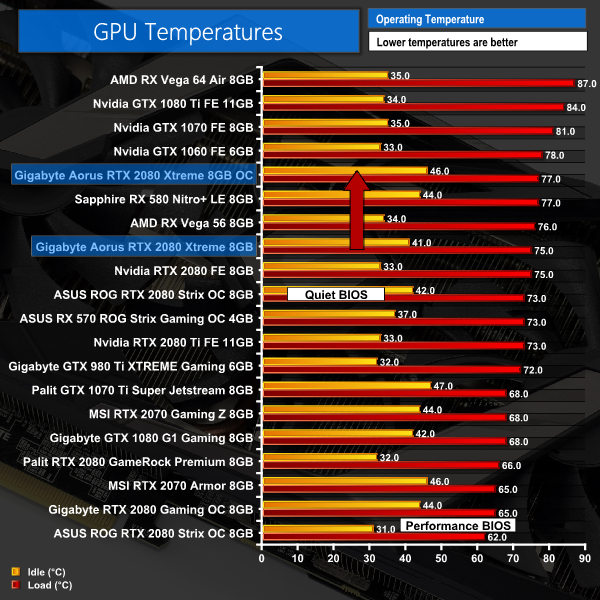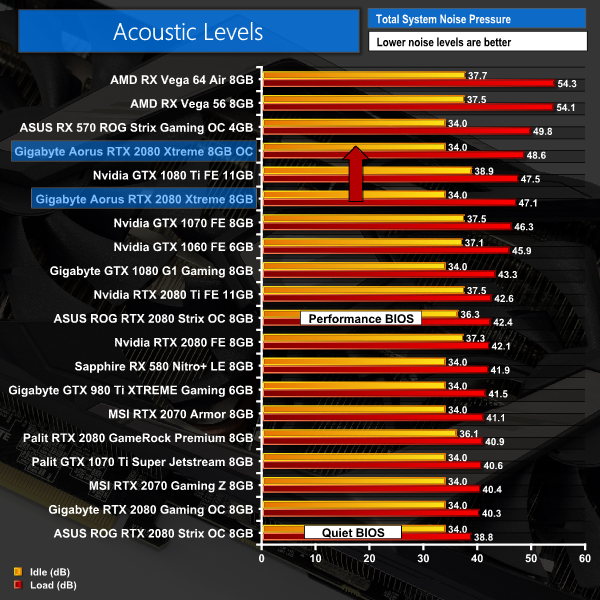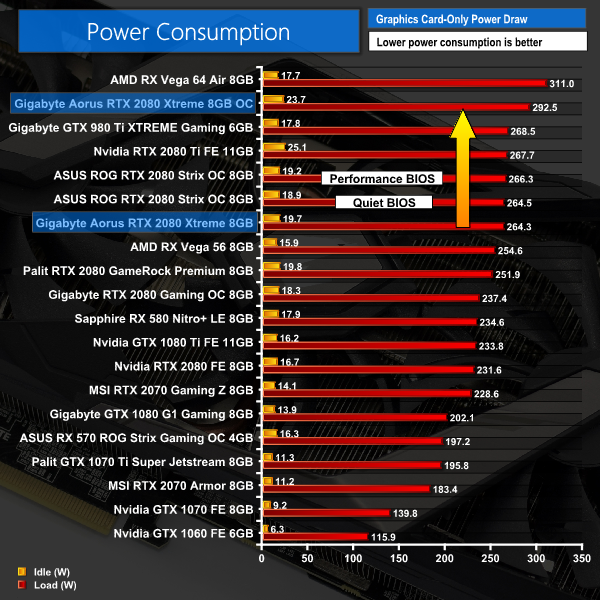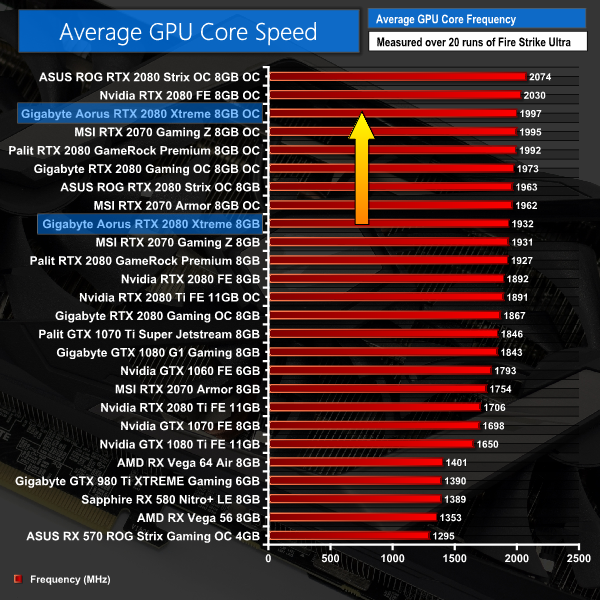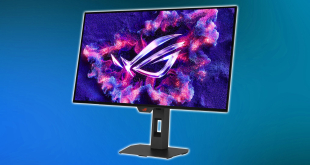Here, we take a further look at the impact of our overclock, looking at the increased temperatures, acoustics, power draw, and lastly, the effect had on the average clock speed.
Temperatures
Acoustics
Power consumption
Average clock speed under load
Overview
While the likes of GPU temperatures and noise levels didn't increase that much – relatively speaking – when dealing with the overclock, considering the card was already running relatively hot, and certainly on the loud side of things, this overclock obviously doesn't help. In fact, the peak noise level of 48.6dB when overclocked makes this the loudest Nvidia card on test. Power consumption jumped up nearly 30W, too, bringing total consumption almost to 300W, with just our Vega 64 drawing more juice.
I wouldn't say the clock speed gain is worth it, either, We saw a real-world average frequency of 1997MHz, which is 65MHz faster than what we achieved at stock clocks – and as we saw on the previous page, this didn't bring much performance benefit at all.
 KitGuru KitGuru.net – Tech News | Hardware News | Hardware Reviews | IOS | Mobile | Gaming | Graphics Cards
KitGuru KitGuru.net – Tech News | Hardware News | Hardware Reviews | IOS | Mobile | Gaming | Graphics Cards


